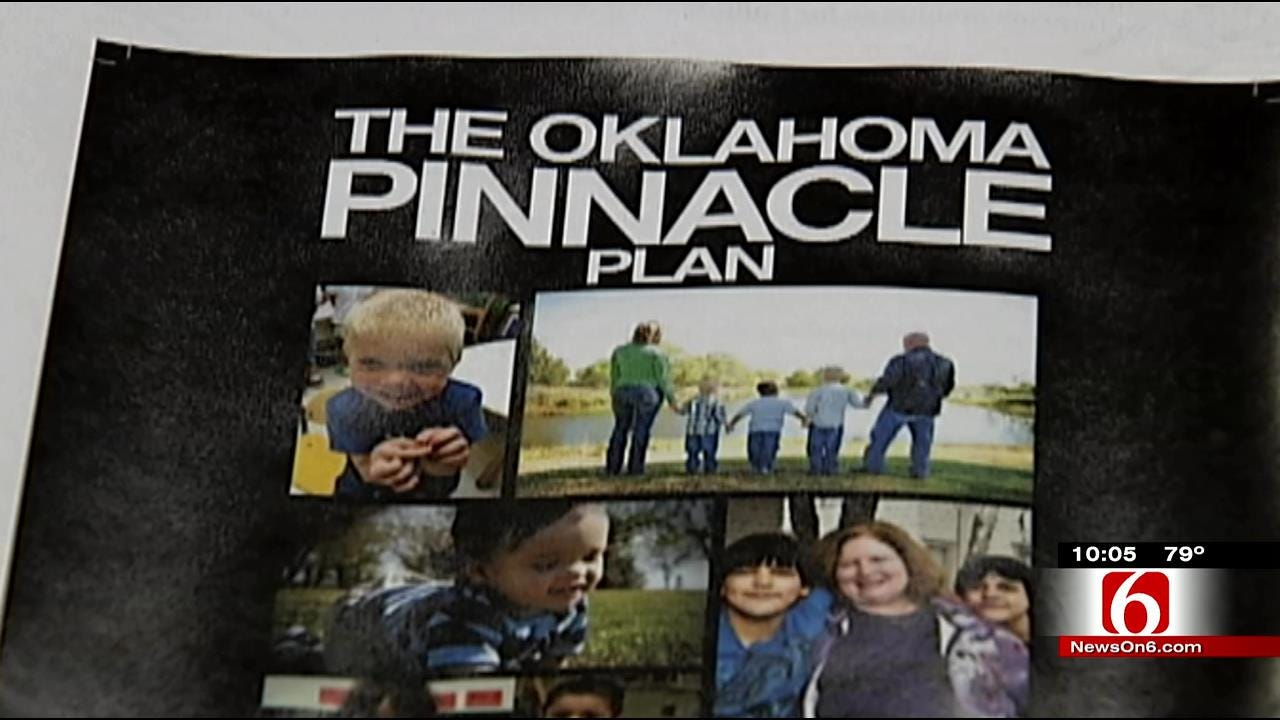Some Question Pinnacle Plan's Effectiveness On Oklahoma's DHS
Tulsa is about to undergo a major shift in the way children in the foster care system are treated, and not everyone is convinced it's a step in the right direction.Monday, June 8th 2015, 11:59 pm
Tulsa is about to undergo a major shift in the way children in the foster care system are treated, and not everyone is convinced it's a step in the right direction.
The Laura Dester Shelter, built by a coalition of community groups for more than $12 million, is set to close by the end of the year.
DHS has had a number of public hearings in Tulsa to discuss the issue, but the question still remains, where will the children go?
Alicia and Clint Palmer represent the ideal of what everyone agrees is best for foster children - a loving, stable home.
The Palmer's became foster parents three years ago because they wanted to expand their family, and expand they did.
Until just a few months ago, they were housing seven foster children, now they're down to five, with hopes of soon adopting two.
Alicia said the journey has been unexpected and wonderful.
“I just can't explain enough what a blessing it's been in our lives,” she said.
Which isn't to say there haven't been challenges.
“I say all the time that the kids are actually the easy part,” Alicia said.
The hard part, she said, is dealing with the court system, the paperwork, the appointments and DHS workers.
“The reality is that they are so overworked. They are overworked and underpaid,” she said.
That's one of the things that was supposed to be changing in Oklahoma.
A lawsuit was filed against the state in 2008 over the deficiencies in the foster care system. The result was something called the Pinnacle Plan.
Finalized in 2012, it outlined specific goals DHS needed to meet to improve the lives of the children in its care.
Three years in, some, like Tulsa attorney Anne Sublette, say its failing.
“I think children are now in greater peril when they're in state custody than they were before,” she said.
Sublette helped initiate the lawsuit against DHS seven years ago.
Terry: “What made you feel compelled to push this lawsuit against the state in the first place?
Sublette: “Because things were awful. I had one client who had 54 placements, 54.”
She is by no means convinced things are getting any better. Sublette said DHS is trying so hard to meet the goals of the Pinnacle Plan that it's cutting corners concerning safety.
She said two of her young clients were recently moved from their grandparents home after it turned out their grandfather is a registered sex offender.
“And I have several other cases where children were initially placed with family and moved because of abuse, including sexual abuse,” Sublett said.
She believes DHS needs to change its culture by making sweeping changes at the top; and it has taken steps in that direction.
Ed Lake took over the reins of DHS shortly after the Pinnacle Plan was implemented, but his decision to close Tulsa's Laura Dester Shelter sparked a fresh wave of outrage from advocates who saw Lake as more concerned with the building than the children.
“Well, where are you going to put the kids? We haven't figured that out yet. You know, literally. These are the answers that he's been giving,” Sublette said.
Lake said, “We're not going to hurry to place children inappropriately. That's already occurring. We don't want to repeat that mistake, but we do want to hold ourselves to a reasonable timeline.”
What's reasonable and appropriate for the Oklahoma's most vulnerable citizens, is still up for debate.
This spring, former Lieutenant Governor Jari Askins was appointed to oversee implementation of the pinnacle plan.
“We're making good progress. Other states have done it and we believe Oklahoma can too,” she said.
But with Oklahoma lagging in its effort both to recruit new foster homes and reduce the caseload of DHS workers some say they've already seen enough.
“It's like putting the fox in charge of the hen house. These folks didn't think they were doing anything wrong in the first place and that didn't change,” Sublette said.
Earlier this month, the people who initiated the lawsuit against Oklahoma sent a letter to the monitors of the Pinnacle Plan, saying that DHS is not making adequate progress and asking for court intervention.
DHS has until Tuesday to respond.
More Like This
September 29th, 2024
September 17th, 2024
Top Headlines
December 12th, 2024
December 12th, 2024
December 12th, 2024












